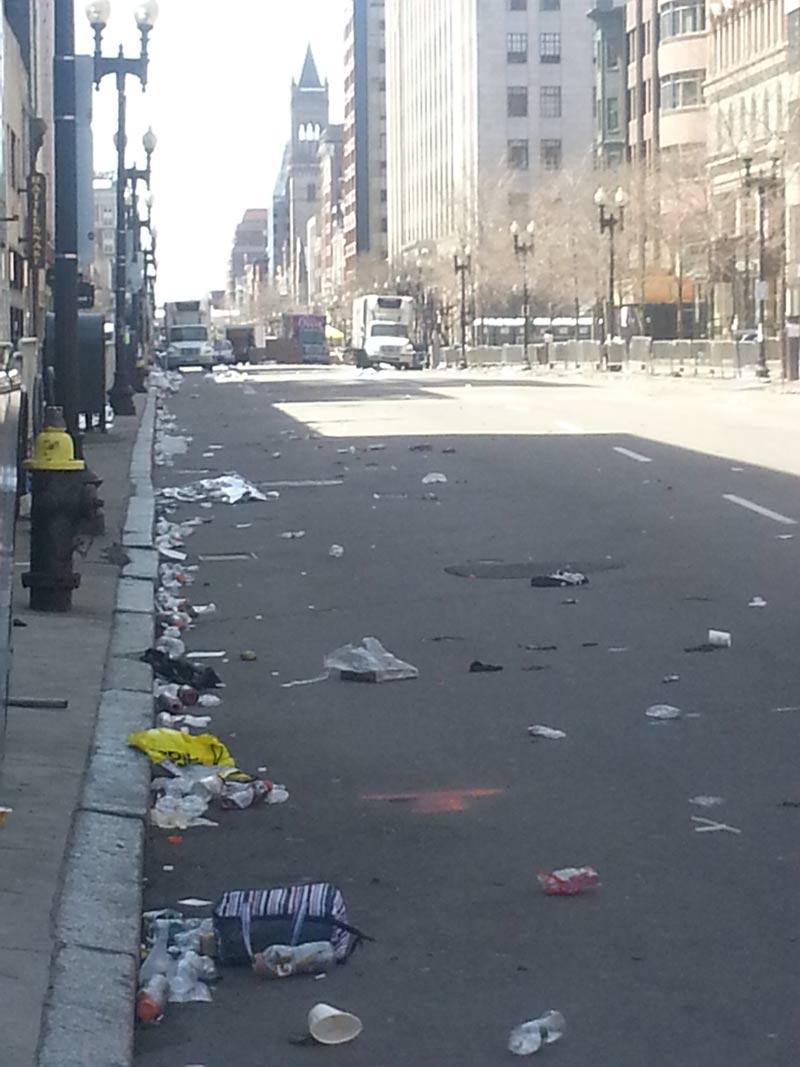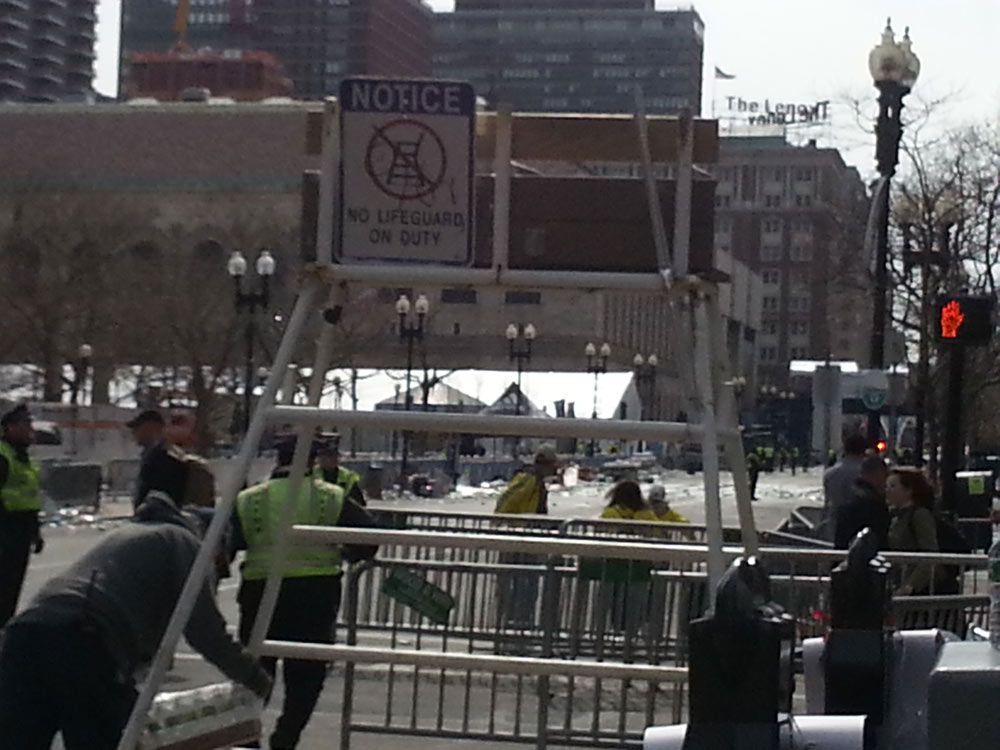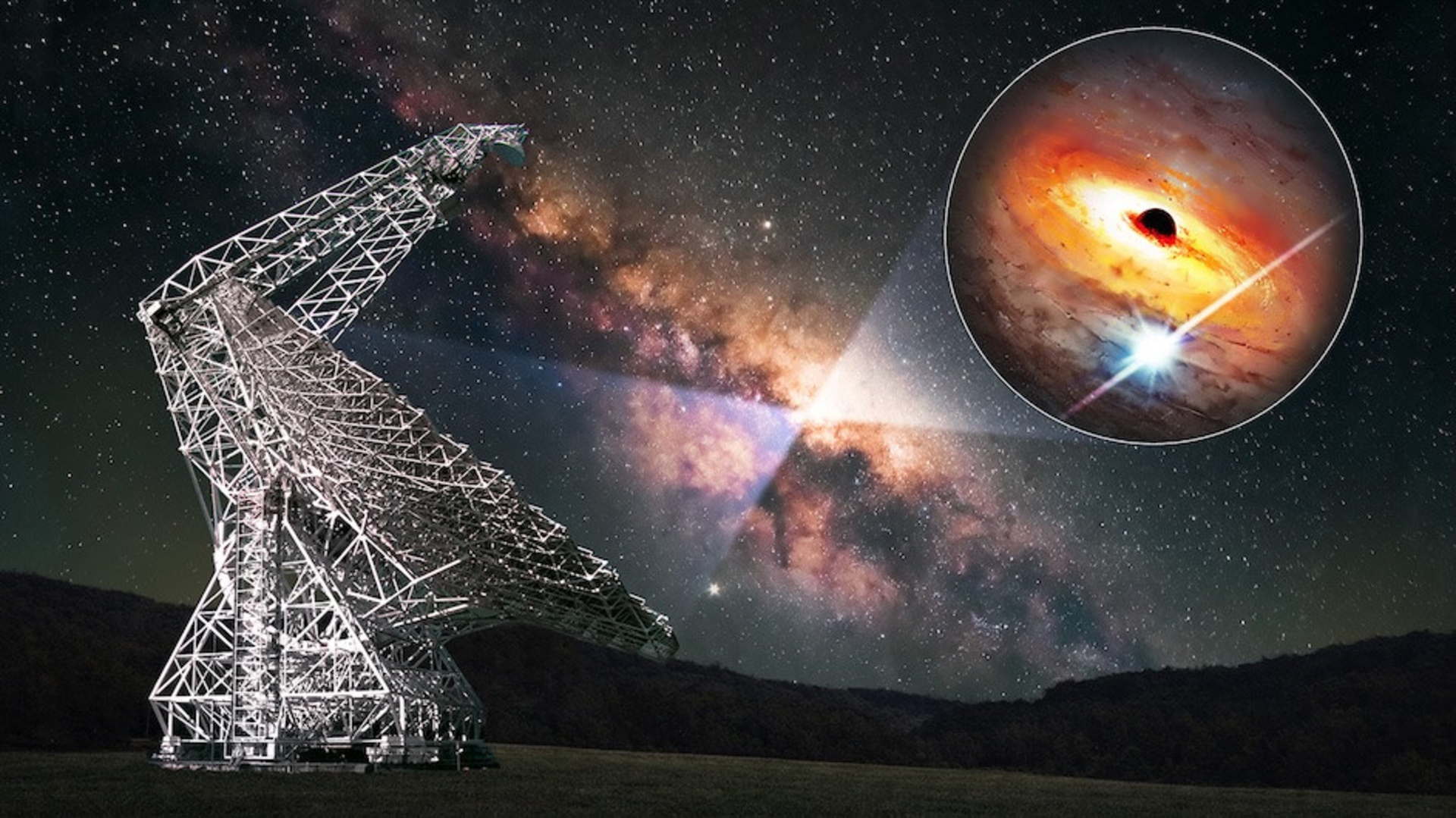Boston Lockdown: What It's Like Inside

Get the world’s most fascinating discoveries delivered straight to your inbox.
You are now subscribed
Your newsletter sign-up was successful
Want to add more newsletters?

Delivered Daily
Daily Newsletter
Sign up for the latest discoveries, groundbreaking research and fascinating breakthroughs that impact you and the wider world direct to your inbox.

Once a week
Life's Little Mysteries
Feed your curiosity with an exclusive mystery every week, solved with science and delivered direct to your inbox before it's seen anywhere else.

Once a week
How It Works
Sign up to our free science & technology newsletter for your weekly fix of fascinating articles, quick quizzes, amazing images, and more

Delivered daily
Space.com Newsletter
Breaking space news, the latest updates on rocket launches, skywatching events and more!

Once a month
Watch This Space
Sign up to our monthly entertainment newsletter to keep up with all our coverage of the latest sci-fi and space movies, tv shows, games and books.

Once a week
Night Sky This Week
Discover this week's must-see night sky events, moon phases, and stunning astrophotos. Sign up for our skywatching newsletter and explore the universe with us!
Join the club
Get full access to premium articles, exclusive features and a growing list of member rewards.
BOSTON — The drone of helicopters and scream of sirens have become a way of life in Boston this week.
As I write, I’ve been glued to news station sites, Twitter and Facebook for the last 18-some hours, keeping the streams up during a fitful night's sleep.
The first sign that something was wrong at the end of this deeply wrong week was last night's (April 18) emergency text from MIT, where I worked as an assistant editor for the university's magazine up until last year. The word was that there was a robbery at a 7-11 convenience store, and a shootout near the iconic Stata Center. Immediately, you think of everyone you know who could be working there late, who lives nearby, who might be passing through at the wrong time. Panicked messages spread through the networks; friends and friends of friends working there late posted on social media accounts that they were barricading doors, keeping the lights off. [Inside Twisted Terrorist Minds — Where Is the Empathy?]
More alerts came through: Injuries reported. Area unsafe. MIT police officer down. Still no word of the police apprehending the gun-wielding criminal, which seemed unusual.
My fiancé and I were around the corner from the race on Monday (April 15) when the two bombs went off — a block and a half down from the finish line, where we had been shortly before the explosions. My first thought had been, "earthquake," before the grim reality set in — before we made our way, anxious and confused, across the city with hordes of others to find a working subway station. It's too easy to get consumed in the what-ifs. Colleagues and friends of mine were at the finish line, thankfully physically unharmed, but not OK. The bombing of our local holiday — Patriot's Day, a day meant for Boston — has cut deep in residents' psyches.
Since then, the spring that Bostonians have been waiting for had crept in, life had slowly resumed almost to normal for those not directly injured or witnesses to the bloodshed. You could almost start to put it behind you, except for the perpetual police and military everywhere you looked, staring stonily in the "T" stops (the local public transportation system), scattered in knots across popular tourist spots, like Boston Common and Faneuil Hall Marketplace, downtown.
Early this morning (April 19), we found out the MIT campus police officer had died. The news scraped at hearts and minds already raw from grief and unease. The news was unreal: a connection between the shooters at MIT and the bombing suspects, a carjacking toward the west, a shootout at Watertown, another officer injured, a death of one of the brothers, escape for the other. Again, we needed to stay home, to try to stay safe.
Get the world’s most fascinating discoveries delivered straight to your inbox.
I called my parents, not even sure how to sum it all up.
For the second time this week, people posted that they were safe for now. Again we worry — worry for friends in Cambridge, worry for friends in Watertown, trying not to think of bombs and hostages and all of the other things that could go wrong in our normally safe and stoic city.
The last time we were hunkered down inside, trapped and restless like this was not so long ago, during the approach of Hurricane Sandy. Trapped inside, feeling unsafe. But this is much more insidious.
Like on Monday, we wait for more information. The police scanner apps are down so that the suspect can't get wind of the search. News stations run themselves in circles, speculating.
As I sit writing, we can hear the drone of helicopters, still. The networks are quiet, waiting for information. There’s an eerie calm, as if before a storm. The subway system is resuming, people are cautioned to be careful when venturing out. But most are still staying in. Everyone in the city is holding a collective breath, batting back worse-case scenarios, hoping for a quick, bloodless resolution.
Follow Kristina Grifantini on Twitter. Follow LiveScience @livescience, Facebook & Google+. Original article on LiveScience.com.
 Live Science Plus
Live Science Plus











